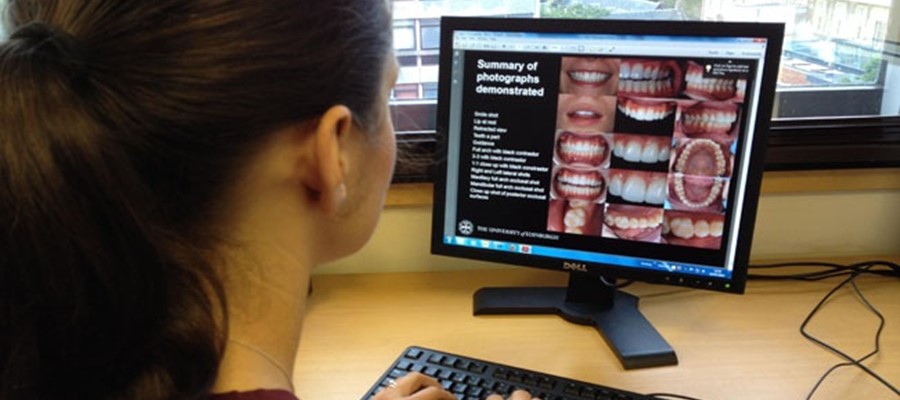Programme Structure
The programme is modular with each course worth either 10 or 20 credits. This means that 60 credits must be completed to become eligible for a Certificate, 120 credits for a Diploma with an additional research or project course worth 60 credits to be completed to be eligible for the Master of Science Degree.
Each course will run over a period of five or ten weeks (depending on the credits) with participation in on-line discussions and completion of learning tasks an integral part of the process.
We will run 60 credits consecutively each year split between two semesters, so it will take one year to reach Certificate level, two years for the Diploma and a third year to complete a clinical case report and research project and gain the MSc.
The programme is supported online by a virtual learning environment (VLE) and so all the educational material is available in one place. Coursework for assessment is uploaded to the site and there is an active student discussion board available alongside tutor- led discussions. The University of Edinburgh provides full library and student support through its own online facilities.
Learning Outcomes

- Reflect critically on the relationships between theory and practice.
- To develop an evidence-based approach to clinical practice.
- To develop an understanding of how to assess the quality of restorative dentistry in primary dental care.
- To be able to provide the highest quality of restorative dentistry within primary dental care.
- To establish principles that promote self-criticism and monitoring.
- To contribute to professional development at both a personal and local level.
- To have an understanding of the relevant literature and of the methods for its assessment.
- To gather relevant data through the application of appropriate methods of enquiry
How you will be taught
Each course will provide a review of current literature supporting the topic, an update of knowledge and an opportunity to practice specific clinical skills. There will be reading material, lecture material and interactive tutorials on all of the topics. We recommend that you carry out clinical procedures on your own patients and photograph and document these cases in order to maintain a log-book or portfolio of cases.
Students will be required to have access to a dental clinical camera and a semi-adjustable articulator in order to maintain the log-book of cases. Please email the programme team for further information.
During the on-line seminars and tutorials existing clinical skills will be reviewed and then discussed and updated in light of the prescribed reading and current evidence. You will be expected to make changes to your clinical practice and will be assisted by tutor feedback on clinical procedures to assist in your progression.
Each course has prescribed reading: this will be mainly in the form of original papers from the literature. We will provide on-line library access to these papers. You will be asked to read these before the start of each course as they will provide the essential introduction and background to the teaching.
How you will be assessed
Obtaining credit for the course will depend on the satisfactory completion of
a) the written submission
b) participation in the tutor- led discussion board
c) participation in a group project
d) maintaining a reflective diary
Written assignments vary depending on the course topic, examples would include: an academic essay, a reflective account, a retrospective audit, a critical appraisal project, a treatment plan for a clinical case. All are designed to assess whether the learning outcomes for the course have been achieved.
There is no formal written examination
Each course will be assessed separately as above and credits awarded towards the degree. Tutors will be part of the team of internal examiners and each piece of course work will be marked and moderated as required. All standards will be independently assessed by an external examiner appointed by the University of Edinburgh from another institution. The University marking scheme will be applied to all aspects of the assessment.
The final assessment for the research dissertation and clinical case report course will involve the submission of:
A long case report AND
A systematic review of the literature (formatted in the style of a targeted journal in a form suitable for publication)
IN ADDITION TO
A structured oral examination of a unseen clinical case
| Course number | Title | Credits |
|---|---|---|
| MRES11001 | Introduction to clinical evidence | 10 credits |
| MRES11002 | Introduction to dental clinical photography | 10 credits |
| MRES11003 | Oral Health Assessment and Diagnosis | 10 credits |
| MRES11004 | Assessment and management of occlusion | 10 credits |
| MRES11005 | Treatment planning | 10 credits |
| MRES11006 | Prevention and management of dental caries | 10 credits |
| End of Year 1 – exit point available as a Postgraduate Certificate |
|
|
| MRES11009 | Endodontics | 10 credits |
| MRES11010 | Periodontal management | 10 credits |
| MRES11013 | Advanced Restorative Dentistry - part 1 | 20 credits |
| MRES11014 | Advanced Restorative Dentistry - part 2 | 20 credits |
| End of Year 2 – exit point available as a Postgraduate Diploma | ||
| MRES11008 | Research dissertation and clinical case report | 60 credits |
| Exit award MSc in Restorative Dentistry |
Please email msc.restorativedentistry@ed.ac.uk for a breakdown of topics covered.
Unless explicitly stated otherwise, all material is copyright © The University of Edinburgh 2012-2015.
Site published by the

